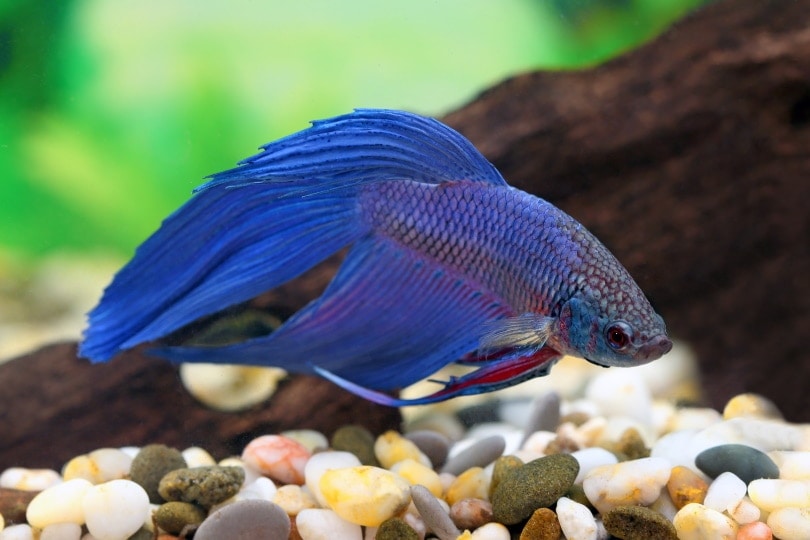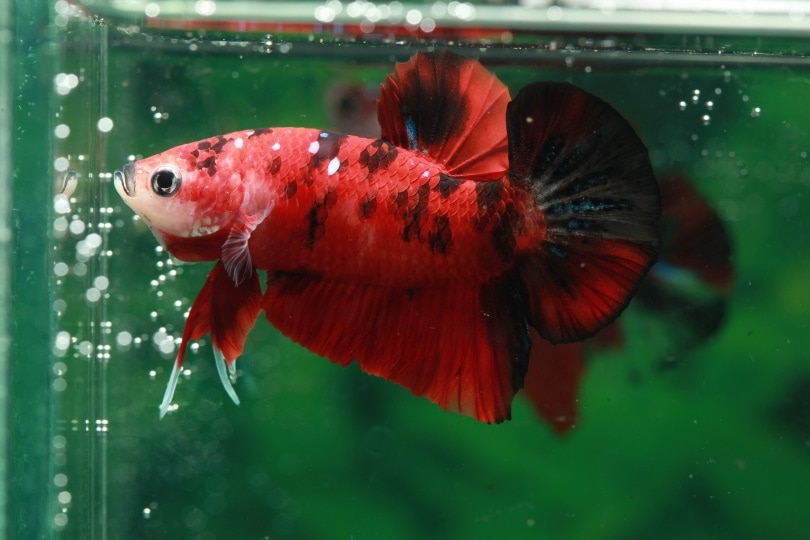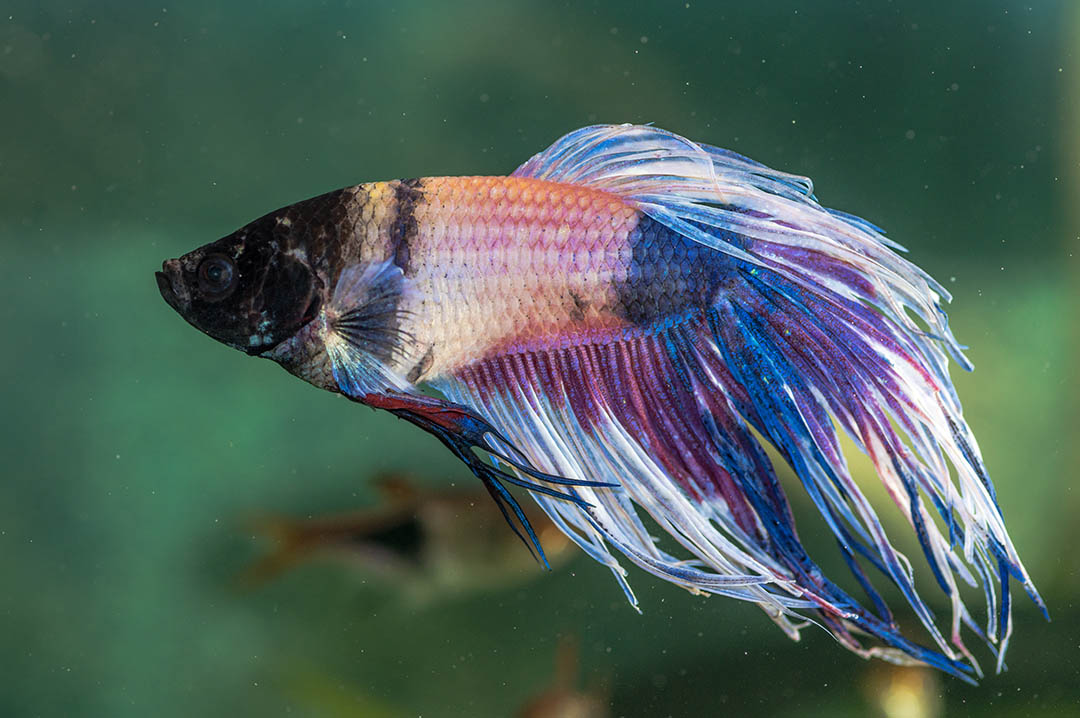10 Signs of a Sick Betta Fish: Vet-Approved Care & Prevention Tips

Updated on
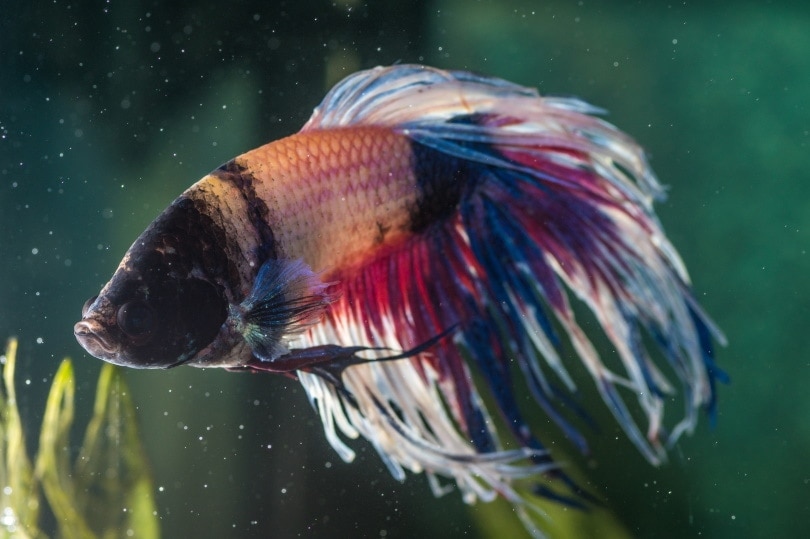
An illness or disease can creep up on a betta fish and go unnoticed for several days until the symptoms get worse. Betta fishes are generally quite hardy fish, which is why they are great for beginners. Because they flourish in the poor conditions of their natural habitat, they can hide their symptoms to stay undetected by predators that may take advantage of their vulnerable state.
It is always a good idea to monitor your betta fish’s behavior to determine what is a cause for concern, and what is a potential abnormal behavior that needs treatment.
Dealing With a Sick Betta Fish
Bettas can exhibit many different forms of sickness such as swim bladder disorder, physical parasites, or even internal infections. Every sickness has signs that allow them to be grouped into different forms of problems that have their treatments.
If you suspect that your betta fish may be sick, you should isolate them from other fish or invertebrates in the tank. This will stop the spread of the potential disease or parasite. A treatment tank allows you to use a variety of medications to treat your betta without having to worry about crashing the main tank’s nitrogen cycle.
The 10 Main Signs of a Sick Betta
1. Faded coloring
Usually, the first signs of sickness in betta fish is the loss of their vibrant coloration and a loss of appetite. When a betta is feeling stressed or under the weather then it is common for them to lose a bit of their color. They will appear as a washed-out version of their original color.
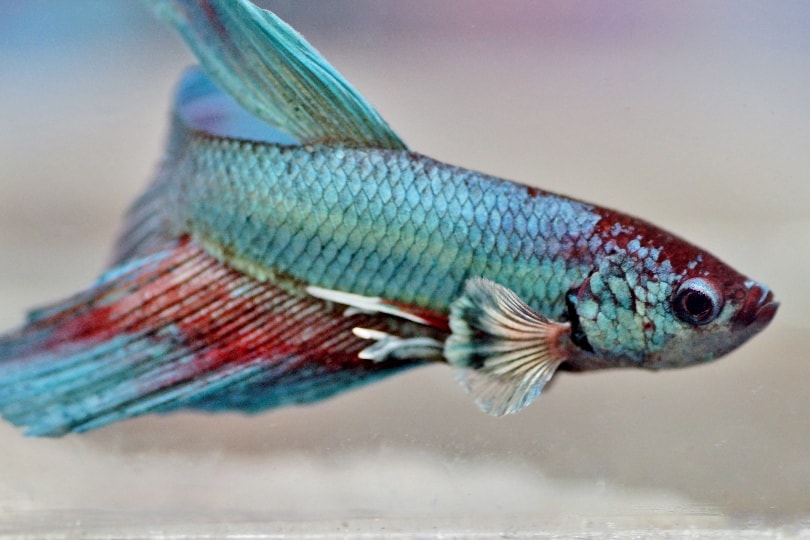
2. Shredded fins
Betta fish are quite susceptible to problems with their fins, like fin rot or tearing. Bettas can easily tear their fins on sharp decorations like fake plants. Fin rot can also cause your betta’s fins to appear shredded and shorter than usual. Unhealthy bettas can also develop holes in the fins from poor water quality or stress.
3. White spots and parasites
If the temperature in your betta’s tank is incorrect, they can develop Ich, which is seen by white dots all over the betta’s body. Skin parasites are also common and either suck the blood from your betta as anchor worms do, or they eat away at the slime coat.

4. Bulging eye(s)
Pop-eye is a common occurrence from a bacterial infection. This can cause one or both eyes to bulge out of their sockets and be accompanied by swelling or a red appearance.
5. Lethargy
Your betta will become inactive and hang around the top of the tank. They may also lie on flat surfaces in the tank when they are tired. This is usually an indication of a certain disease or parasite and is not a sickness itself.
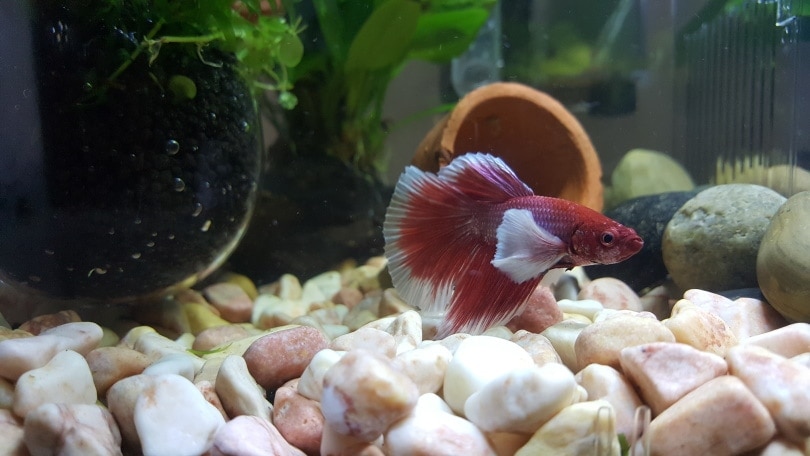
6. Hiding
An unhealthy betta fish will try to hide away. This is a natural adaptation they have learned from the wild when they are feeling vulnerable. Their fins will droop and not fan out spectacularly like a healthy betta’s fins.
7. Loss of Appetite
A betta fish that refuses or spits out food is classified as having a loss of appetite. A betta fish that is not feeling well will generally avoid the food it used to love.
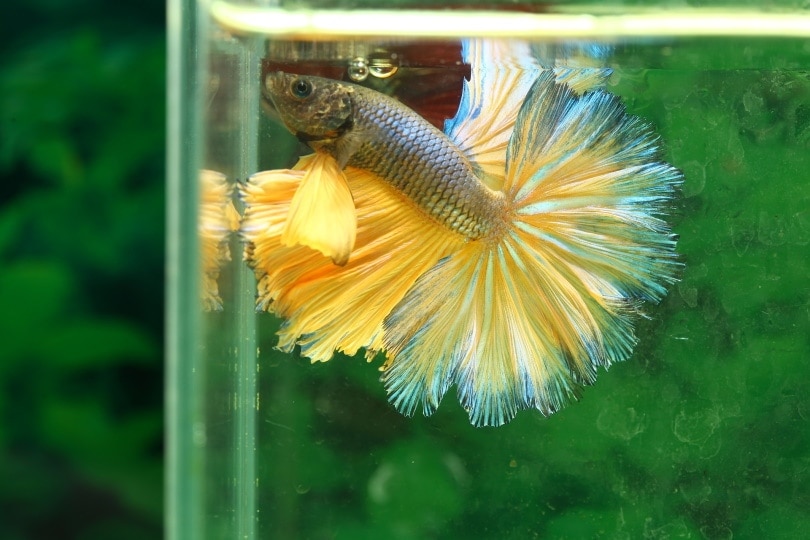
8. Abnormal Swimming Behavior
Swimming erratically, in circles, or abnormally can be an indication that you may have a sick betta fish. A swim bladder disorder can cause your betta fish to swim upside down. Flukes and other external parasites can cause jerking swimming behaviors alongside itching on objects in the tank.
9. Rubbing or Scratching
Betta fish do this in an attempt to dislodge parasites and other irritants that can be caused by poor water quality.
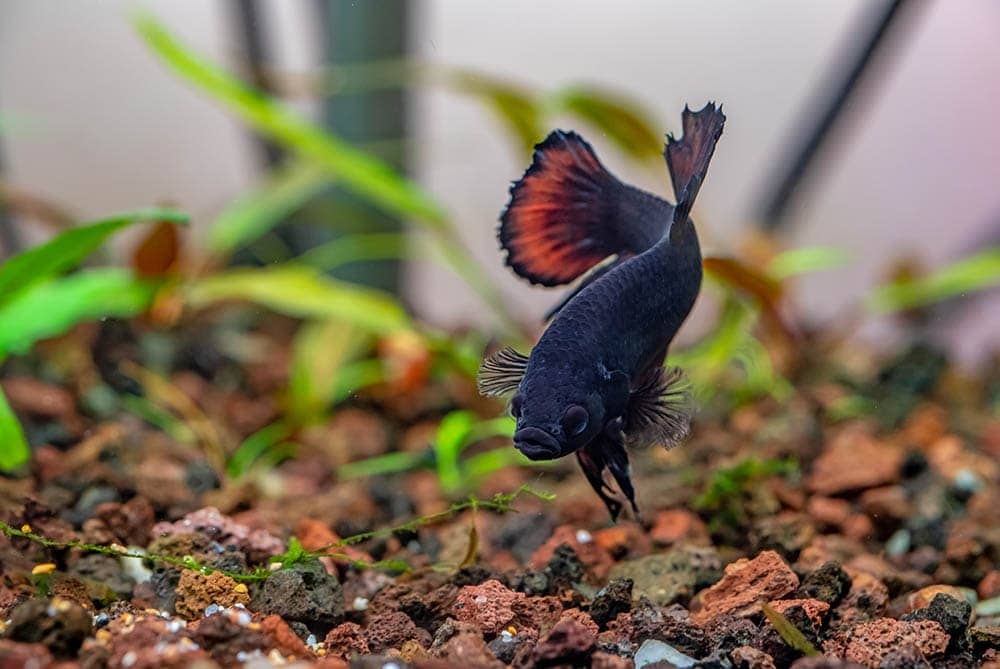
10. Swelling Or Dropsy
If you notice that your betta fish has swelled by their abdominal area, they may be suffering from bloat. This can be caused by feeding too much food or if you feed inadequate foods like algae and other plant-based materials. Dropsy is caused by organ failure that leads to an extremely swollen abdomen and a phenomenon known as “pine-coning” where the bettas scales stick out.
What to Do If You Think Your Betta Fish is Sick
If you think you have an unhealthy or dying betta fish, the first step is to compare the symptoms your fish is experiencing to the possible diagnosis. Isolate the fish from other tank mates and place them in a 5-gallon treatment tank with the appropriate medication. Treating your betta fish as soon as you notice any symptoms of an underlying illness is important. Bettas can succumb to their signs if the wrong treatment plan is being used or if the illness is too severe.
It is a good idea to continuously monitor your betta’s behavior so that you can get an idea about their usual and healthy behavior and quickly be able to notice if they are acting differently.
How to Prevent Your Betta Fish from Getting Sick
Prevention is better than cure, and providing them with the right conditions and diet is the first step in ensuring your betta fish remains healthy and happy.
- Betta fish should be housed in a minimum-sized tank of at least 5 gallons. Bigger is better when it comes to aquatic life, and some bettas do well in tanks that are as large as 40 gallons.
- Feed your betta a varied diet rich in protein and low in plant matter. Live foods like bloodworms, brine shrimp, and insect larvae can help make your betta’s color more vivid while increasing their immunity.
- Keep the water quality within the ideal levels for a better. The levels of ammonia and nitrite in the water should never exceed 0 ppm, while the nitrate levels should remain below 15 ppm. The use of a filter, live plants, and regular water changes will keep the overall water quality healthy. The use of a filter, live plants, and regular water changes will keep the overall water quality healthy. If the ammonia levels exceed 0.25 ppm, then your betta will have trouble maintaining a healthy slime coat which will allow opportunistic bacteria and parasites to latch onto them.
- A heater should always be running in the tank. The temperature should be kept at 28 °C (82.4 °F).
Final Thoughts
There are plenty of signs that your betta fish is sick. You should expect your betta to develop a few minor illnesses during their lifetime unless you ensure that the conditions are perfect and you do not add in tank mates that could potentially be harboring a disease. If you catch the sickness early on, treatment will be more effective.
Featured Image Credit: Wirestock Creators, Shutterstock






